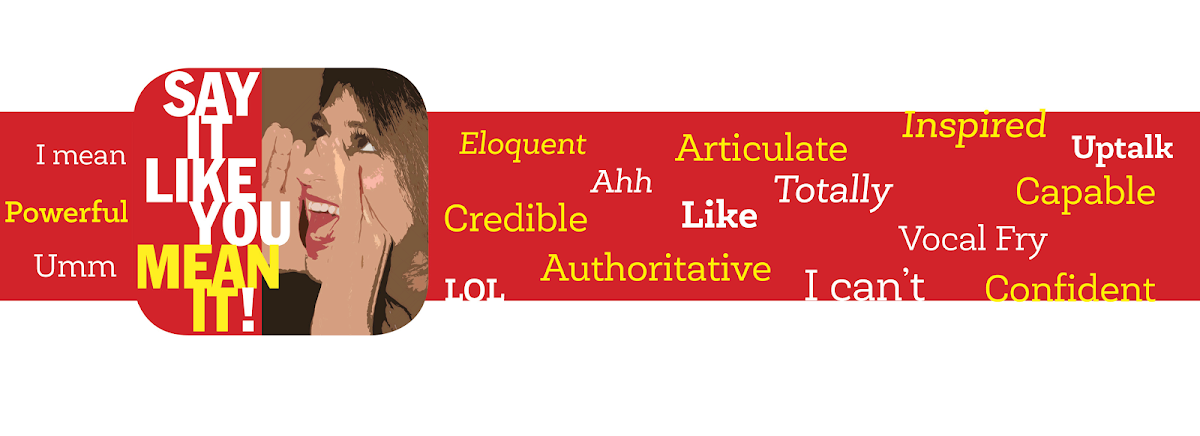Ken Burns’ recent documentary “The Roosevelts: An Intimate History”
had my ears perked up, the eloquence of Teddy, FDR and Eleanor’s words washing
over me. They spoke with such fluency and sophistication that I wondered: Has
the very nature of our communications transformed, degraded and become overtly
casual and conversational? And with
that, do we all still value a refined and eloquently delivered speech? Or, is it just not our style any more?
The 21st century has brought with it new verbal
fashion trends and our Kardashian-infested culture and social media channels
are no doubt influencing the way we communicate. Although our abbreviated text talk (BTW, OMG,
GR8) and the 140-character limited tweet are convenient and quick (like fast
food) these new forms have surely contributed to reducing the attention span of
most Americans – and perhaps even the desire to dedicate time to a carefully
composed oratory. But do we still value a great communicator?
At my recent “Say it Like You Mean it” panel presentation
similar questions were put to me by both a reporter and an audience member. I
thought I would dig deeper and sought out New York Times author of “On
Language” and presidential speech writer William Safire’s tome “Lend Me YourEars: Great Speeches in History,” for inspiration and explanation.
Safire begins by
talking about how he has not heard a great speech come out of the White House in a
long time. He says that the speechwriters claim concern about flowery speeches
and that “high-flown rhetoric is not their man’s style.” Safire believes there must be a more profound
reason and that the reluctance is more about taking the time to write out a set
speech. He says that we have become a “short-take society” (this observation made
way before the advent of texting, hash tagging and Twitter!).
Safire goes on to
predict “phonevision” and to lament the fact that we are “relying more and more
on commercial poets and cartoonists to express our thoughts.” He is keenly
concerned that we seem to be talking more and writing less and he offers four
steps to “The Salvation of the Written Language.”
Ultimately, Safire
does come away hopeful for the future of the written word – and the great
speech. He says, “If a speaker will take the time to prepare, we are prepared
to pay in the coin of our attention."
We don’t need to go back to the personal, thoughtful letter
delivered via snail mail to know intuitively that people are writing less. But in
our new world of smartphones and digital communications, we need not degenerate
from articulate prose to verbal slang, the “like, ya know syndrome,” and to
talking in text.
I do see hope that we all - including our digital natives –
still value the eloquent speech – and it lies in a three-letter acronym…
Fast-forward 36
years from Safire’s commencement speech and consider the speaking phenomenon
known as TED (Technology, Entertainment, Design) – the non-profit devoted to
“Ideas worth spreading.” TED Talks are
all about compelling storytelling – no sales pitches or power point slides allowed. Available to all, TED Talks are bringing back
the eloquent speech, teaching us about great composition and compelling us all to
be better listeners. Tune in and you can
hear top researchers, deep thinkers, authors and experts in their field regale
you with new insights on an assortment of topics, from Dan Gilbert’s TheSurprising Science of Happiness to David Gallo’s Underwater Astonishments.
As a family, we
love listening to the TED Radio Hour on long car rides. And, my 15-year-old daughter – an
enthusiastic digital native with two blogs of her own as well as a Facebook,
Instagram and Twitter account - listens to TED Talks on the school bus and
while doing homework.
Safire said, “I
believe we can arrest the decline of the written word, thereby achieving a
renaissance of clarity.” I believe
too! And, I know if he were still alive,
he would see the genius in TED Talks and find plenty of fodder to pump his fist,
particularly in this constantly changing world of digital communications with
its Internet slang, text talk, emojis and hashtags.
And I know we would
all be thrilled to lend him our ears.



